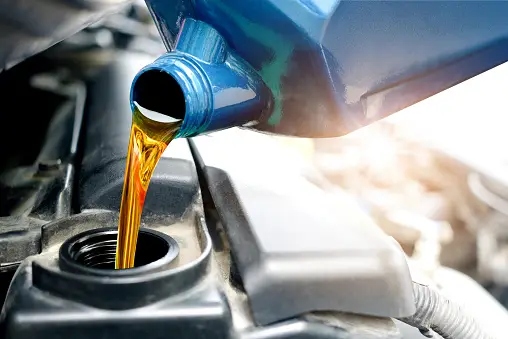November 13, 2023
What happens if you put the wrong oil in your car?
Putting the wrong type of oil in your car can have various negative consequences, depending on the severity of the mistake and the specific oil used. Here are some potential problems that can occur:
- Reduced Engine Performance: Different engines require specific types and viscosities of oil to operate optimally. Using the wrong oil can lead to reduced engine performance, as it may not provide the necessary lubrication and protection for engine components. This can result in decreased power, efficiency, and overall engine longevity.
- Increased Engine Wear: Using the wrong oil may not provide adequate lubrication, leading to increased friction and wear on engine parts. Over time, this can result in damage to critical components like the pistons, crankshaft, and camshaft, which can be expensive to repair.
- Overheating: In some cases, using the wrong oil can cause the engine to overheat. This is because the oil may not have the proper heat dissipation properties required for your engine. Overheating can lead to engine damage and potentially catastrophic failure if not addressed promptly.
- Oil Sludge Buildup: Mixing different types of oil can sometimes result in the formation of sludge within the engine. Sludge is a thick, gel-like substance that can clog oil passages and reduce the oil’s ability to flow freely. This can lead to poor lubrication and damage to engine components.
- Poor Fuel Economy: Incorrect oil viscosity can negatively impact fuel economy, as it can increase internal engine friction and reduce overall efficiency. This means you may end up spending more on fuel than you would with the correct oil.
- Check Engine Light: Using the wrong oil may trigger your car’s onboard diagnostics system to illuminate the check engine light. This can be due to issues related to oil pressure, viscosity, or other factors.
- Warranty Voidance: If your car is under warranty, using the wrong type of oil may void your warranty coverage for engine-related issues, as it can be considered improper maintenance.
To avoid these problems, it’s essential to use the oil recommended by your vehicle manufacturer, which can typically be found in your car’s owner’s manual. This recommendation takes into account the specific requirements of your engine and ensures that it operates as intended. If you’re unsure about which oil to use or have made a mistake, it’s best to consult with a professional mechanic or an authorized dealership for guidance and potentially an oil change to rectify the issue.
Is thicker oil better for older engines?
Thicker oil can sometimes be beneficial for older engines, but it depends on the engine’s condition, manufacturer recommendations, and climate. Here are some factors to consider when choosing the right oil viscosity for an older engine:
- Engine Wear: Older engines may have more wear and looser tolerances between engine components due to years of use. Thicker oil with a higher viscosity can help compensate for this wear by providing better lubrication and reducing friction. However, it’s essential not to use oil that is too thick, as it can increase drag and reduce fuel efficiency.
- Manufacturer Recommendations: The best way to determine the appropriate oil viscosity for your older engine is to consult the owner’s manual or check for any manufacturer recommendations. They will often provide guidance on the recommended oil viscosity range for your specific engine.
- Climate Considerations: Climate plays a significant role in choosing the right oil viscosity. In colder climates, thicker oil (e.g., 10W-40 or 20W-50) may be suitable for older engines because it provides better protection at startup when the engine is cold. In hotter climates, thinner oil (e.g., 10W-30) may be more appropriate to prevent overheating.
- Oil Change Intervals: Thicker oil may break down more slowly and offer better protection over extended oil change intervals. If you plan to use your older vehicle for long trips or extended periods between oil changes, a slightly thicker oil may be beneficial.
- Professional Advice: If you’re uncertain about which oil viscosity to use in your older engine, it’s a good idea to consult with a professional mechanic. They can assess the engine’s condition, consider your driving habits and local climate, and provide a tailored recommendation.
It’s important not to overcompensate with excessively thick oil, as it can lead to reduced fuel efficiency and other issues, including increased wear on the oil pump and potential startup problems in extremely cold weather. Striking the right balance between viscosity and engine condition is crucial for optimal performance and longevity.
Ultimately, the key is to follow the manufacturer’s recommendations whenever possible and adjust based on your specific circumstances, taking into account the age and condition of your older engine, local climate, and your driving habits.

